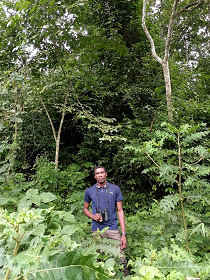
Golooba Martin
Ecological and social drivers of range use in the endangered red colobus monkeys (Piliocolobus tephrosceles) in Kibale National Park, Uganda
Uganda —
A central issue in the investigation of the behavioral ecology of free ranging animals concerns their space use patterns. Primates have to decide when and where to move to meet their food requirements while avoiding predation and competition with conspecifics and other species. However, the many comprehensive studies that have deeply explored behavioral adaptations to ecological changes in primates have mainly focused on primates feeding on unevenly distributed food, such as fruits, a resource considered to affect home ranges use. To examine the theories about the drivers of habitat use, evaluations including the role of social interactions, such as, competition with conspecifics, the presence and movement patterns of predators and the availability and distribution of even food resources in leaf-eating primates are very significant. Therefore, I investigate how home range size and movement behavior (length and directionality of daily travel paths) changes in the endangered red colobus (Piliocolobus tephrosceles) monkeys is linked to the distribution of preferred food items and how their movement behaviors are linked to the presence and behavior of other social groups of red colobus, predatory species (i.e., chimpanzees) and other, non-predatory species (i.e. red tails, mangabeys) that they form polyspecific associations with, in Kibale National Park.
This award was supported by JRS Biodiversity.